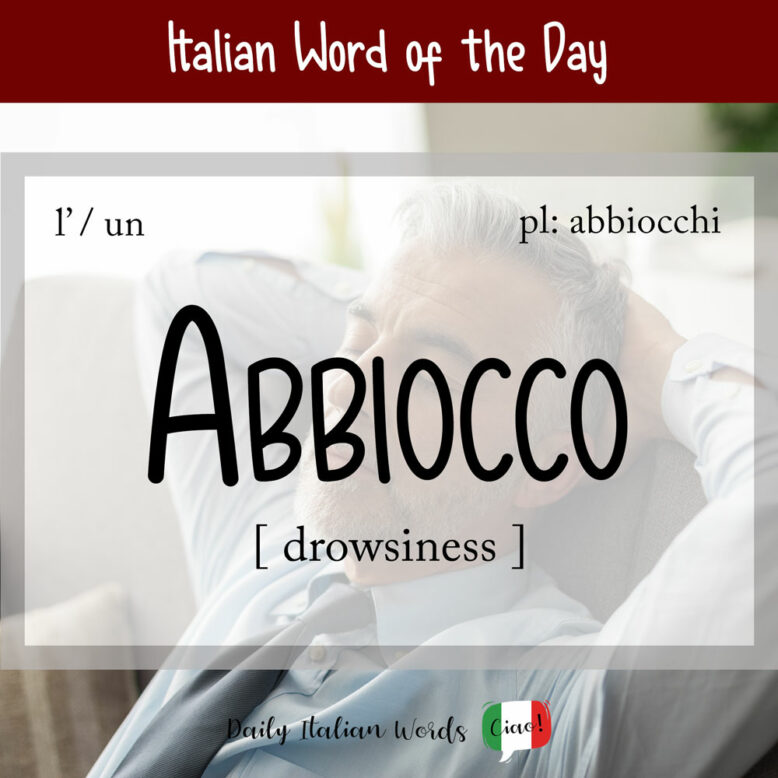We’ve all experienced it — that drowsy sensation that sneaks up on you after a large meal. One minute you’re chatting and laughing with friends and family, and the next, you’re slumped back on the couch, struggling to keep your eyes open.
Italians have a special word for the fit of drowsiness that occurs after eating a large quantity of food: abbiocco (masculine, plural: abbiocchi).

Unlike the kind of sleepiness you experience before going to bed, the abbiocco is an invitation to abandon yourself to a pure state of relaxation, or to shrug off your responsibilities for a brief time before returning to the real world.
Dopo il pranzo di domenica, mi è venuto un abbiocco e mi sono sdraiato sul divano!
After Sunday lunch, I had one of those drowsy spells, so I lay down on the couch.

The word is often paired with the verb avere to create the expression avere l’abbiocco – literally “to have the drowsiness.”
Ho un abbiocco pazzesco. Forse dovrei andare a fare una passeggiata per svegliarmi.
I am so sleepy. Perhaps I should go for a walk to wake myself up.
The word originates from the dialects of the central regions of Italy, namely Lazio and Le Marche. It derives from the verbs abbioccare / abbioccarsi, which mean to exhaust and to doze off respectively.
Did you know that…?
Foods containing the amino acid tryptophan make you sleepier than others. These include turkey (tacchino), cheese (formaggio), fish (pesce), eggs (uova), and spinach (spinaci). No wonder we feel an irresistible urge to nap after Christmas dinner!

Heather Broster is a graduate with honours in linguistics from the University of Western Ontario. She is an aspiring polyglot, proficient in English and Italian, as well as Japanese, Welsh, and French to varying degrees of fluency. Originally from Toronto, Heather has resided in various countries, notably Italy for a period of six years. Her primary focus lies in the fields of language acquisition, education, and bilingual instruction.


